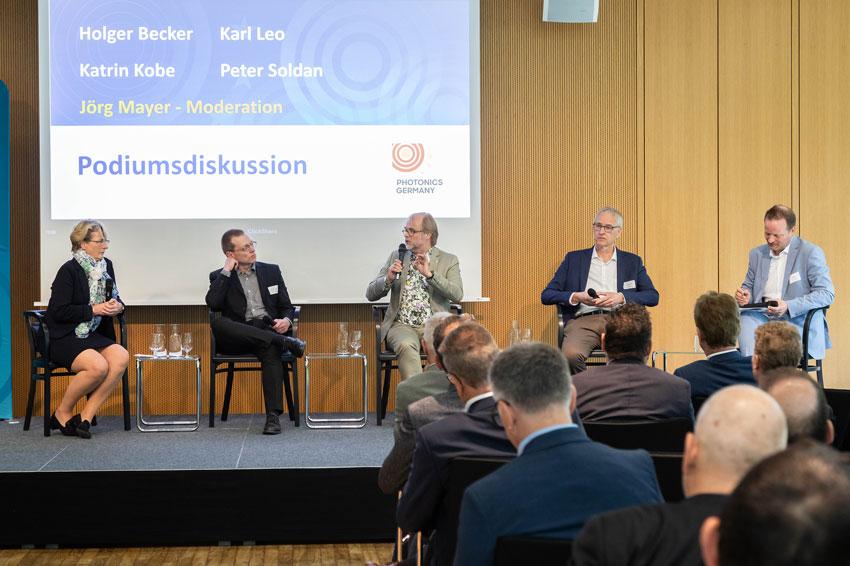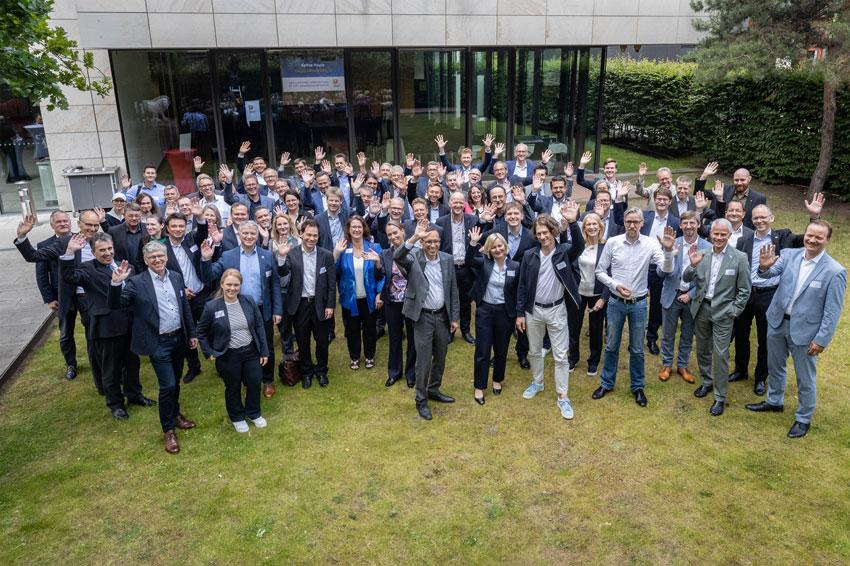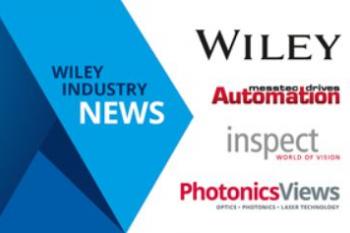Shaping the future of photonics and quantum technologies in Germany
09.07.2024 - The opportunities and challenges of photonics and quantum technologies were addressed at the Photonics Germany Future Summit in Berlin.
Photonics Germany, the alliance of Spectaris and OptecNet Deutschland, invited leading players from business, research and politics to present new technologies and opportunities in photonics and quantum technologies on 11 June 2024. Together with a total of one hundred participants, the needs for action were discussed. The evening before, a get-together with BBQ at the Sky Lounge Deck5 offered an excellent opportunity for networking and establishing new contacts.
In her summit opening keynote, Dr Katrin Kobe, CEO of Bosch Quantum Sensing, highlighted the importance of photonics for various key applications. In addition, she gave concrete recommended actions for the future viability of photonics and quantum technologies in Germany.
Dr Thomas Rettich, executive board member of Photonics21, gave an overview of the European research funding of photonics within the framework of the technology platform Photonics21 and presented successful projects. He pointed out that the participation in the design of the new EU research framework program is possible via Photonics21.
Subsequently, Dr Peter Soldan, head of quantum systems, VDI Technology Center, dealt with the current and planned funding programs of the Federal Ministry of Education and Research (BMBF) and emphasized that photonics and quantum technologies are equally addressed. In addition, he presented the recommendations for action of the Photonics Germany position paper (in 2022) and explained which topics were taken up by the BMBF.
Michael Kellner, Parliamentary State Secretary at the Federal Ministry for Economic Affairs and Climate Action (BMWK), addressed the following words to the participants: “Photonics is an industry that is growing, that is agile, that is leading the way. Congratulations!” In his speech, he focused on export control, research funding, recruitment of skilled workers from abroad and bureaucracy. He explained that there are intensive efforts by the federal bodies to achieve substantial improvements.
Dr Andreas Ehrhardt, Photonics Germany, presented highlights and perspectives of photonics and quantum technologies. He put a focus on the current situation of photonics as well as the economic boundary conditions and emphasized the urgent need for political action to continuously have a leading international position.
Prof Dr Volker Sorger, University of Florida, emphasized the importance of photonics for the US Chips Act and gave insights into the activities at the University of Florida. In this context, numerous opportunities for business relationships with German companies can be considered.
The perspective of the Research Committee of the Bundestag became apparent in the presentation by Dr Holger Becker, Member of the Bundestag. He approached the question “Can Germany innovate?” with examples of strategy papers that take photonics into account as well as with aspects of the current need for action. To increase the visibility of photonics in politics, lighthouse projects are helpful. In passing, he mentioned that only 30 of 735 members of the Bundestag have a STEM degree, which is disadvantageous for the implementation of high-tech topics.
Afterwards, Dr Holger Becker, Dr Katrin Kobe, Prof Dr Karl Leo and Dr Peter Soldan discussed the future viability of the photonics industry in Germany, moderated by Jörg Mayer, managing director of Spectaris. The panel discussion put focus on the question of how the photonics industry deals with the numerous challenges, including increasing trade barriers, geopolitical conflicts, shortage of skilled workers, high tax burdens, energy costs and social security contributions, as well as excessive bureaucracy, and what it takes to stay successful in Germany and worldwide.
Prof Dr Karl Leo, TU Dresden, presented organic semiconductors on the way from laboratory curiosity to mass production.
Dr Michael Overdick, Sick, dedicated his presentation to optical sensor technology and artificial intelligence in automation and logistics.
Later on, Prof Dr Joachim Ankerhold, Ulm University, gave an insight into the basics, challenges and perspectives of quantum technologies. He emphasized the importance of networks consisting of companies, research institutions and other partners to jointly advance new technologies.
Prof Dr Christoph Runde, VDC Fellbach, presented the different technologies and potentials of the Industrial Metaverse for photonics and quantum technologies.
At the end of the event, Prof Dr Martin Roth, University of Potsdam, gave an insight into the innovation potential of astrophysics and presented industrial applications based on developments in space travel and astronomy.
The organizers thank the sponsors Fiberware and Zeiss, who made a valuable contribution to the success of the event, as well as OptecBB for their financial support of the networking event at Deck5. They also thank the speakers for their inspiring contributions and all participants for the intensive exchange.







